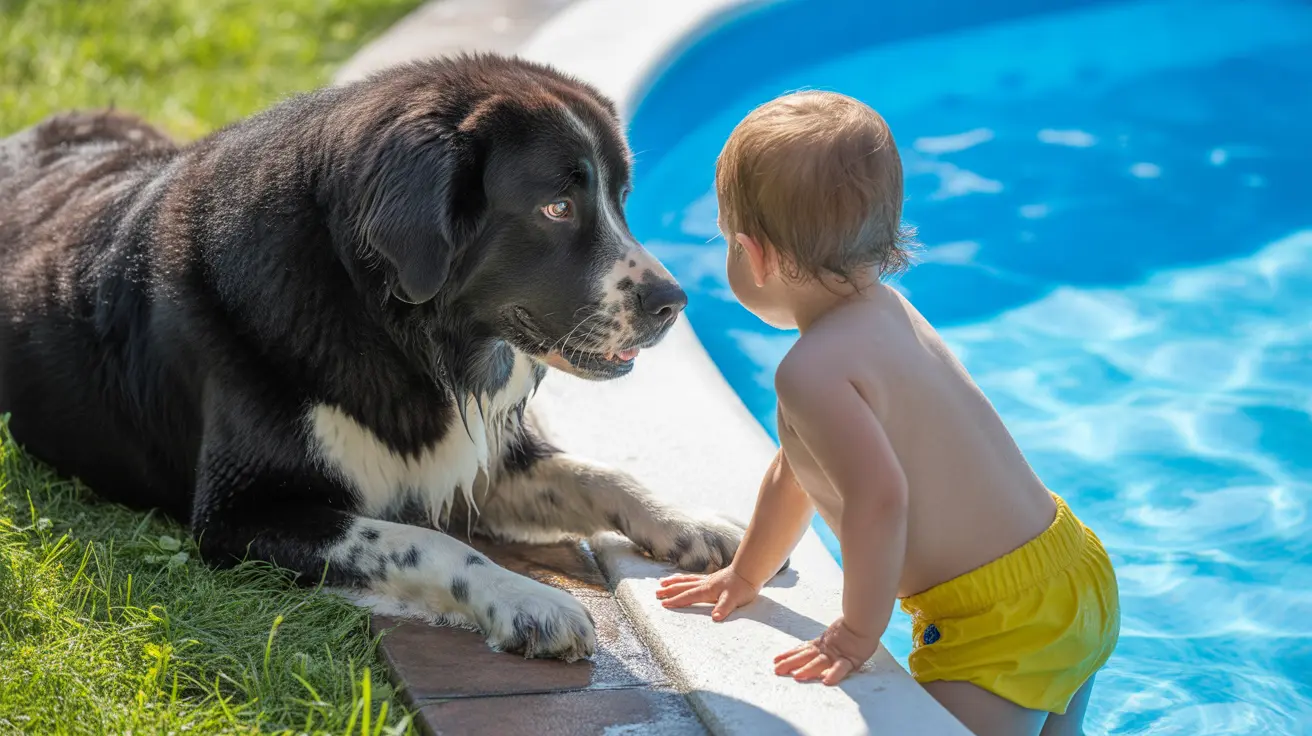Natural Protective Instincts of Newfoundlands
Newfoundlands possess an innate sense of protectiveness that manifests in subtle yet effective ways. Unlike aggressive guard dogs, these gentle giants typically demonstrate their protective nature through vigilant observation and careful positioning. They're known to naturally place themselves between their family members and potential threats, acting as living shields rather than aggressive defenders.
Their protective instincts are particularly evident around water, where their historical role as rescue dogs shines through. With their powerful swimming abilities and natural lifesaving instincts, Newfoundlands have been known to spontaneously rescue people from drowning, even without specific training.
The Famous "Nanny Dog" Reputation
Perhaps the most celebrated aspect of Newfoundlands' protective nature is their extraordinary relationship with children. Their patience, gentleness, and protective instincts toward little ones have earned them the nickname "nanny dog." This reputation was immortalized in J.M. Barrie's "Peter Pan," where the character of Nana, a Newfoundland, served as the children's nursemaid.
These dogs seem to have an almost supernatural ability to sense when children are in potentially dangerous situations. They've been known to guide toddlers away from stairs, pool edges, and other hazards, often before parents even notice the potential danger.
Protective Behaviors and Training
Newfoundlands exhibit several characteristic protective behaviors that set them apart from other breeds. They typically alert their families to potential dangers through calm but persistent barking, physical positioning, and gentle guidance rather than aggression. Their imposing size alone often serves as a natural deterrent to potential threats.
When properly trained and socialized, these dogs develop an excellent sense of judgment about what constitutes a genuine threat versus normal daily activities. They remain friendly and welcoming to approved visitors while maintaining their protective watch over their family.
Living with a Protective Newfoundland
While Newfoundlands are naturally protective, they require proper care and management to thrive in their guardian role. These giant breeds need adequate space, regular exercise, and consistent grooming. Their protective nature is most effective when coupled with proper socialization and training from an early age.
Owners should be prepared for the physical demands of having such a large dog, including managing their substantial food requirements and providing appropriate healthcare. Despite these considerations, many families find that the protective benefits and loving companionship of a Newfoundland far outweigh the challenges.
Frequently Asked Questions
How protective are Newfoundland dogs toward children and families?
Newfoundlands are exceptionally protective of children and families, earning their "nanny dog" nickname through their gentle yet vigilant guardian nature. They naturally watch over family members, especially children, and will intervene if they sense danger.
Do Newfoundlands make good guard dogs for home security?
While Newfoundlands are protective, they're not typically aggressive enough to be traditional guard dogs. Their size and presence can deter intruders, but they're generally too friendly to serve as dedicated security dogs.
What kind of protective behaviors do Newfoundland dogs typically show?
Newfoundlands show protection through positioning themselves between perceived threats and family members, alerting through barking, and gently guiding family members away from danger. They rarely show aggression unless absolutely necessary.
How should I train and socialize a Newfoundland to enhance their protective instincts?
Early socialization and positive reinforcement training are crucial. Focus on exposing them to various situations and people while young, teaching basic obedience, and reinforcing calm, controlled protective behaviors rather than aggression.
Can Newfoundland dogs sense danger and intervene without being aggressive?
Yes, Newfoundlands are known for their ability to sense danger and respond appropriately without aggression. They typically use their size and presence to deter threats and will only become physically protective if absolutely necessary.






